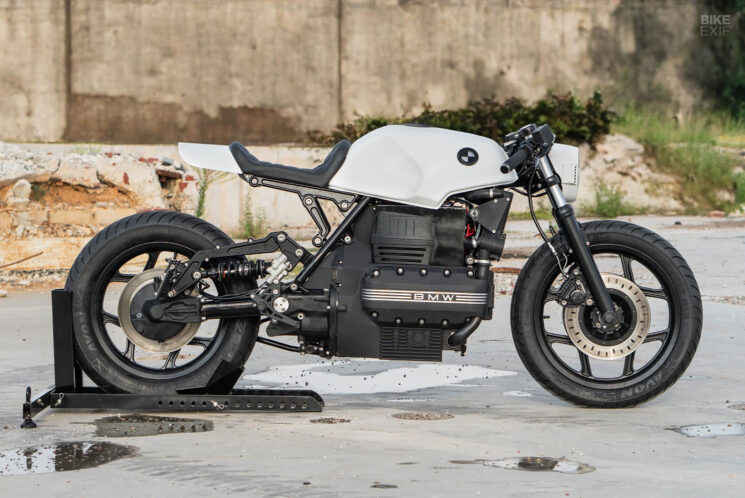
Building a café racer with an older motorcycle usually involves two phases; getting the bike running, and customizing it. And if the bike is really beaten up, the first phase can be the hardest—especially if the engine is too far gone.
Marshall Hewitt had a novel approach to this particular challenge. This ex-police 1991 BMW K100 was a true basket case when he found it, with a seized engine among the myriad issues that needed attention. So Marshall side-stepped the problem entirely, by simply yanking the engine out and replacing it with a modern electric powertrain.
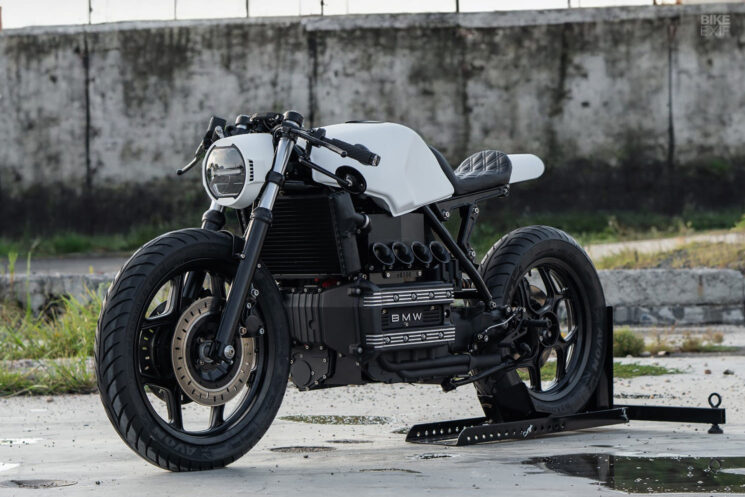
An automation engineer by trade, Marshall has been building café racers as a hobby for a few years now. He normally works on bikes with internal combustion engines, but he’s not averse to trying new things. So converting the BMW K100 to electric was more than just a way to get the bike back on the road—it was also an opportunity to develop an all-new platform.
“I’ve always loved the look of a stripped-down café racer; just a frame, engine, tank, and wheels,” Marshall says. “But going electric would totally throw that off—so I wanted to build one that honored that original stripped-down look. My goal was to maintain the stock and iconic look of the K100 engine, A.K.A. The Flying Brick; intentionally deceiving onlookers from even knowing it was electric.”
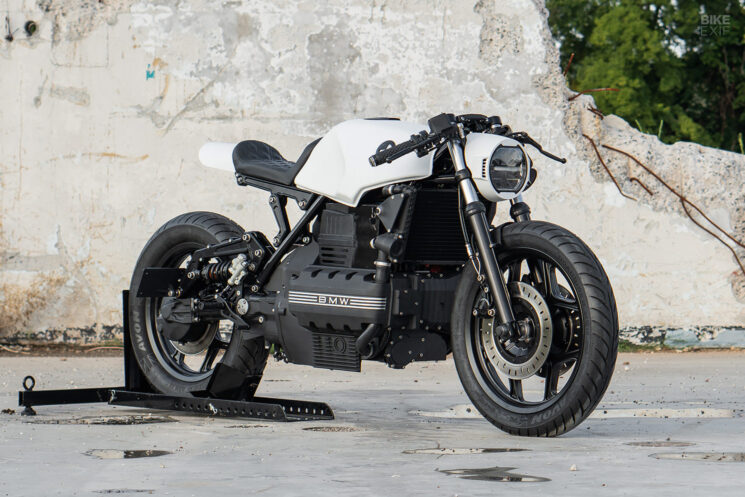
To achieve this deception, Marshall yanked the K-series engine out of the frame and 3D-scanned the whole thing. He then designed a set of covers that would accurately mimic the stock powerplant, while covering the new electric unit. A cursory glance at the K100 should fool most passersby—although the faux exhaust is a dead giveaway.
Hiding inside is the new 35 kW electric motor and 8.2 kWh battery, plus all the bits and pieces required to run them. The setup is good for a top speed of 160 km/h [100 mph] in sport mode, with a claimed range of over 160 km [100 miles] in eco mode. A custom tank lid offers access to the charging port, which is capable of both Level 1 and Level 2 charging.
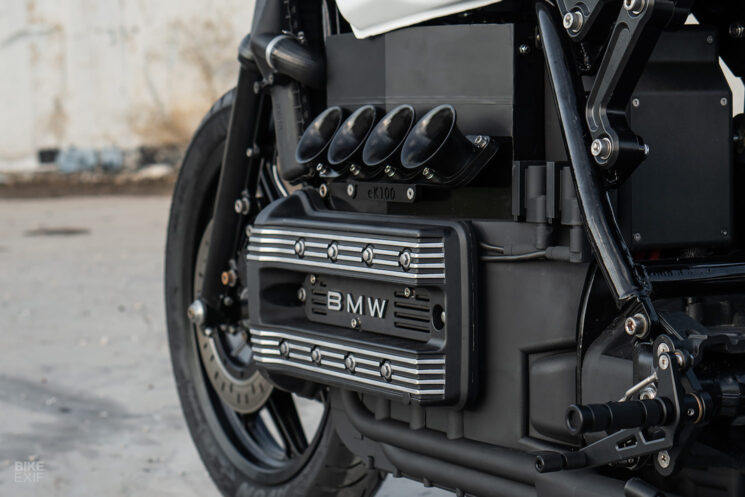
A Motogadget ‘brain’ sits at the center of the wiring system; it’s hidden underneath the hollowed-out tank, along with the onboard charging system and key electronic components. A Domino throttle spools up the motor, transferring power to the rear wheel via the heavily modified, now single-gear, OEM transmission.
A Domino clutch lever is hooked up to a spring-loaded electric clutch, adding the ability to trim or cut power on demand. The cockpit is finished off with clip-ons, Motogadget switches, bar-end turn signals, and Biltwell Inc. grips. A tiny Motogadget speedo sits in a custom housing, neatly integrated into the shape of the top yoke.
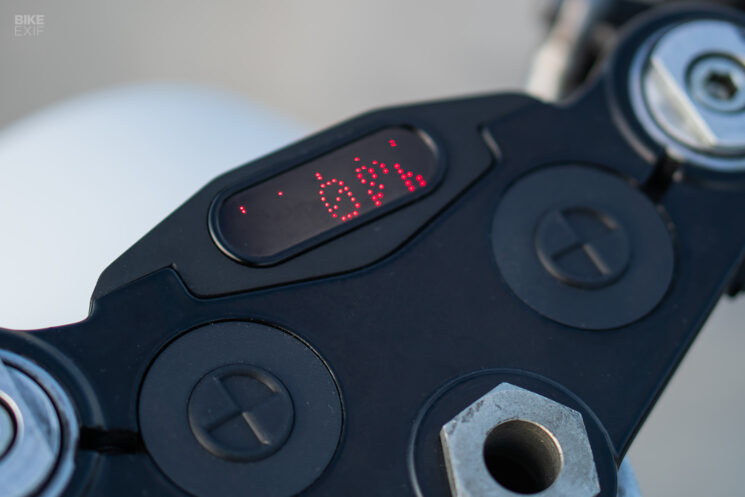
Embedded in the yoke are custom-made oversized buttons, styled like subtle BMW roundels. One toggles sport mode, while the other switches the charging system on and off.
“No permanent desecration took place to install the electric engine package,” says Marshall, who’s planning to produce this system as a kit under the banner of Electro Motorworks. “EMW’s goal is to provide the least abrasive electric motorcycle conversion, functionally and aesthetically; offering a direct combustion engine replacement package that requires no permanent modifications to your motorcycle, and utilizes all the existing engine mounts, and mechanical and electrical connections.”
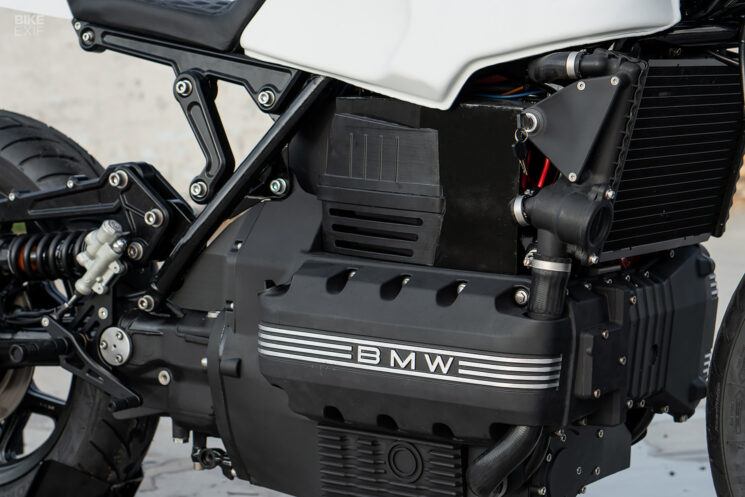
With the drivetrain package in place, Marshall set his sights on the BMW K100’s chassis and bodywork. The K100 was disassembled down to every last component and meticulously made new again. Marshall rebuilt the forks, steerer tube, transmission, wheels, and final drive with new seals and bearings, deleted the ABS, and refurbished the brakes, adding new Venhill hoses.
The wheels were powder-coated and wrapped in fresh Avon Roadrider rubber, while the front fork legs were liberated of their reflectors and smoothed off. The front forks were also lowered and fitted with progressive springs.
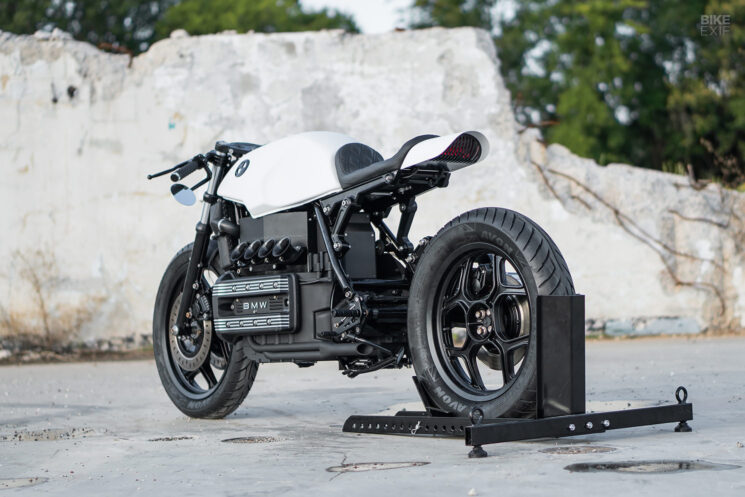
The frame was de-tabbed and reinforced, before being tweaked to accept a rear suspension system and subframe from Retrorides, hooked up to a YSS shock. “The design was heavily inspired by RetroRides, Powerbrick Performance, and ZiggyWorks,” he tells us. “All of them have created their own world-class K100 café racers, and have parts directly featured on this build.”
ZiggyWorks supplied the seat, while Powerbrick sent over a set of rear-sets and tank badges. The headlight is a Koso unit, mounted in a 3D-printed nacelle that’s inspired by Powerbrick’s sharp K-series customs. A Honda CBR600 taillight with integrated turn signals does duty at the opposite end of the bike.
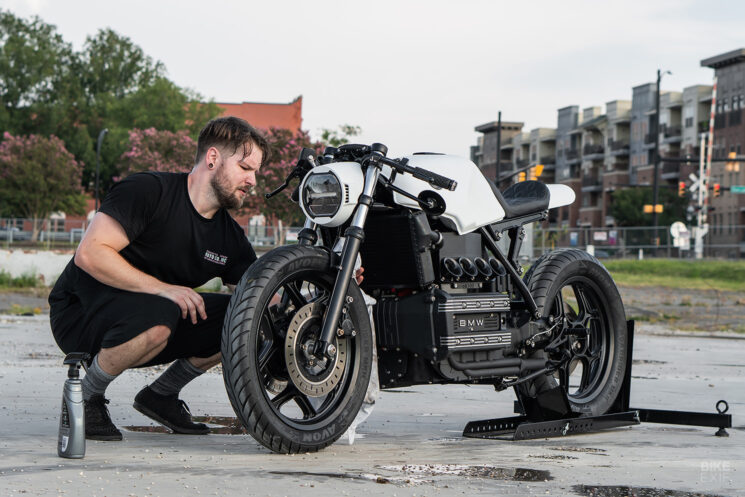
Not only is this BMW K100’s stealthy electric conversion impressive, but it’s a damn sharp-looking café racer to boot. And if this butters your toast, keep your ear to the ground; Marshall plans to have kits ready by the end of the year.
Marshall Hewitt Instagram | Images by Dan Johnson
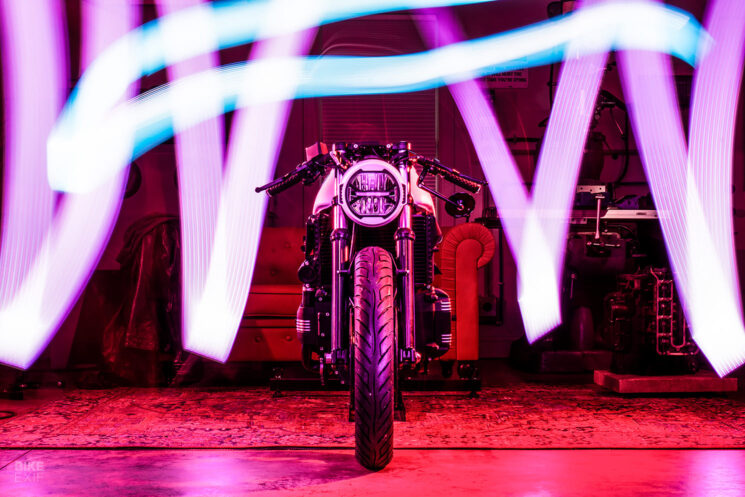
from Bike EXIF https://ift.tt/1WALaN5
No comments:
Post a Comment